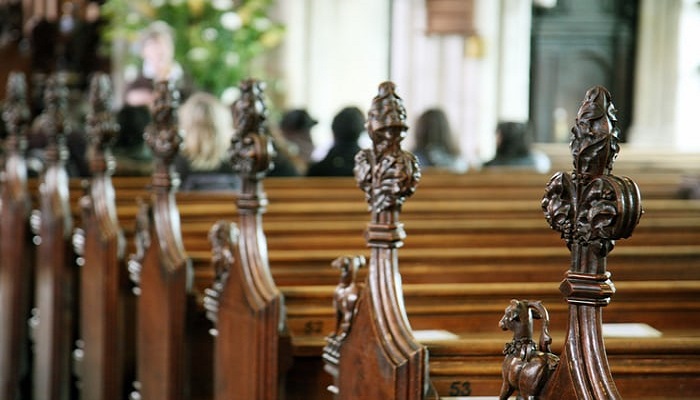
Britain is becoming an increasingly godless society, with more than half of the population now describe themselves as having “no religion”, new figures reveal.
The proportion of non-believers is at a record high of 53%, according to the latest data from the National Centre for Social Research’s (NatCen) British social attitudes survey.
The 2016 research found 15% of people belonged to the Church of England (CofE), 9% to the Catholic Church, 17% to other Christian denominations, and 6% to other religions.
The proportion of those who describe themselves as having “no religion” has increased gradually since the survey began in 1983, when it stood at 31%.
Roger Harding, NatCen’s head of public attitudes, said: “This increase follows the long-term trend of more and more of us not being religious.
“The differences by age are stark and with so many younger people not having a religion it’s hard to see this change abating any time soon.
The decline in religious affiliation is hitting the Church of England particularly hard. Just 15% of people in Britain consider themselves Anglican, half the proportion who said this in 2000.
The proportion of people describing themselves as Catholic has remained relatively stable – at around 1 in 10 – over the past 30 years. Around 1 in 20 (6%) of people belong to non-Christian religions.
More generally, 53% of all adults describe themselves as having no religious affiliation, up from 48% in 2015. The latest figure is the highest since the BSA survey began tracking religious affiliation in 1983, when 31% said they had no religion.
While the fall in religious affiliation is being driven by the young, the proportion of people over 75 saying they have no religion is 27%. A much higher proportion, 40%, identify as C of E or Anglican.
Despite the rapidly shrinking proportion of the public identifying as Anglican, the C of E continues to enjoy a privileged status as the established church, with 26 seats in the House of Lords reserved for bishops.
Many within the C of E have warned that its resistance to same-sex marriage, and the difficulty of some churches in accepting LGBT Christians, have alienated almost an entire generation of young adults. Some young people also view the C of E as failing to embrace and represent the diversity of 21st-century Britain.
C of E leaders are aware of the risk of atrophy, with a warning last year that numbers attending church were expected to continue to decline for the next three decades. They have embarked on an evangelism and reform programme aimed at modernising the church and increasing by 50% the number of priests being trained to 600 recruits a year.
Paul Bayes, the bishop of Liverpool, said the BSA figures “bring a continuing challenge to the churches, to speak clearly of our faith into a sceptical and plural world”.
He said: “In this modern world people are more willing to be honest and say they have ‘no religion’ rather than casually saying they are ‘C of E’. This honesty is welcome … But saying ‘no religion’ is not the same as a considered atheism. People’s minds, and hearts, remain open.
Both God and the church remained relevant, he said. “We in the church, and all who love the church, need to keep finding ways to show and tell those who say they have ‘no religion’ that faith – faith in the God who loves them still – can make that life-transforming difference for them and for the world.”
Roger Harding, of the National Centre for Social Research which publishes the survey, said the latest figures followed “the long-term trend of more and more of us not being religious”.
He added: “The differences by age are stark and, with so many younger people not having a religion, it’s hard to see this change abating any time soon. The falls in those belonging to the Church of England are the most notable, but these figures should cause all religious leaders to pause for thought.”
Humanists UK said the figures raised fresh questions about the place of churches in running state schools and their other privileges.
“How can it be right that 97% of young people today are not Anglicans, but some 20% of the state schools to which their children will go belong to the C of E? More generally, how can the Church of England remain in any meaningful sense the national legally established church, when it caters for such a small portion of the population?” said Andrew Copson, Humanists UK’s chief executive.
Terry Sanderson, president of the National Secular Society, said: “These statistics indicate that the time has come for this country to have a serious debate about the place of religion in our society.”
The BSA data called into question the existence of faith schools and reserved seats for bishops in the House of Lords, he added.

Post Your Comments